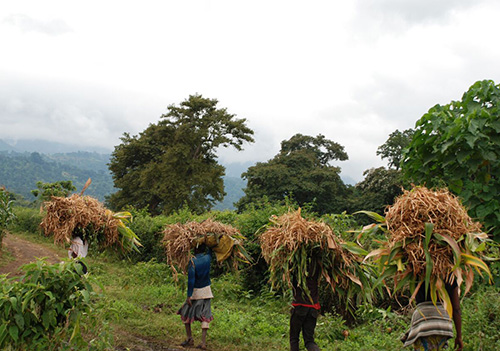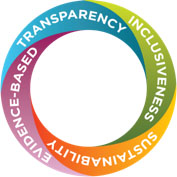This site is currently under development and is not yet launched. If this site is ready to be launched, please contact webadmin@anr.msu.edu.
About
 Mission
Mission
The overall mission of the Feed the Future Innovation Lab for Food Security Policy (FSP) is to promote inclusive agrifood system productivity growth, improved nutritional outcomes, and enhanced livelihood resilience through improved policy environments. Taking a broad view of agriculture, including the farm and off-farm parts of the agrifood system, FSP strives to increase countries capacity to generate policy-relevant evidence and analysis. This knowledge, when utilized by stakeholders, will improve policy formulation
and implementation throughout the food system.
Two Main Objectives
- Address critical evidence gaps for informed policy debate and formulation at country, regional and global levels. Existing evidence on food security policy is often insufficient or misunderstood. The project generates, synthesizes and disseminates new knowledge on targeted policy issues to inform policy planning and implementation at country, regional and global levels.
- Foster credible, inclusive, transparent and sustainable policy processes at country level. The project strengthens national policy systems in their regional contexts, promotes dialogue among all stakeholders around critical policy issues and disseminates stories of successful innovations and best practices in policy capacity building.
 FSP Approach and Underlying Principles
FSP Approach and Underlying Principles
- FSP considers the agrifood chain as a complex system of interactions between a variety of input dealers, farmers, traders, transporters, processors, retailers, and others that link farmers to consumers. FSP addresses transformations that impact the entire agrifood system.
- Collaboration with and between stakeholders in host countries is essential. Scientists and research organizations, policy-makers, private sector, food production groups, and media are involved with the food security policy process. The scale is local, national, regional or global.
- FSP’s contribution is evidence-based and scientifically supported.
- Its approach is transparent and inclusive.
FSP Organization
FSP activity is organized around five clusters (components) grouped under three types of activities:
- Country level support for policy change:
C 1: Field-Level Collaborative Research (on Farms, Firms, and Markets) and Formulation/Analysis of Policy Options
C 2: Capacity-Building for Policy (Data, Analysis, Advocacy, Formulation, Consultation, Coordination, and Implementation) - Policy system analysis:
C 3: Global Collaborative Research on Support to the Policy Process and Policy Capacity - Policy relevant agrifood system research and support to donor policy and strategy:
C 4a: “Upstream” Engagement in Global Policy Debates on Food Security
C 4b: “Downstream” Engagement in Global Policy Debates on Food Security
C 5: Strategic Analytical Agenda and Support to Donor Policy and Strategy
These components and topics interact and inform each other.
They are articulated with four major cross-cutting themes:
FSP provides country level support for policy change through Associate Awards and Mission Buy-ins. Currently, these efforts are focused on one country in Asia Myanmar, and in eight countries or regions in Africa, which include: Africa Great Lakes Coffee Region (Burundi and Rwanda), Malawi, Mali, Nigeria, Senegal, Tanzania, West Africa Region, and Zambia (map of the areas of activity).
Focused Policy Areas
FSP’s work on food security policy encompasses a wide range of topics, including:
- Agricultural Inputs policy
- Land and natural resources tenure
- Resilience and agricultural risk management policy
- Agricultural trade policy
- Nutrition policy
- Institutional architecture for improved policy formulation
- Enabling environment for private sector investment throughout the food system


